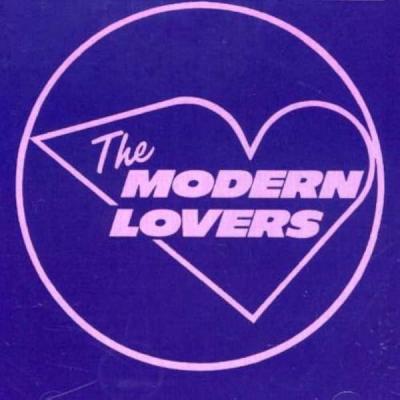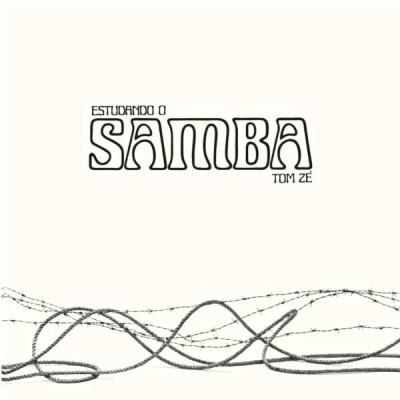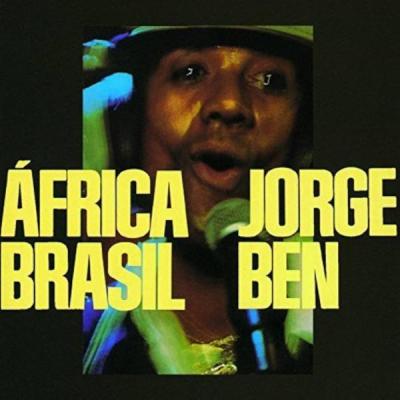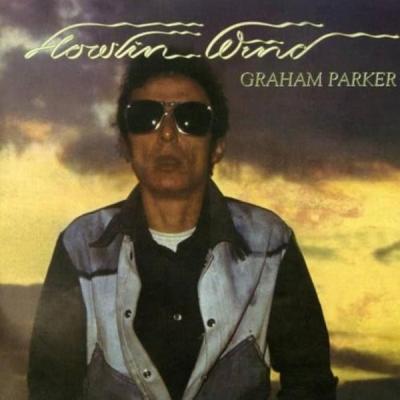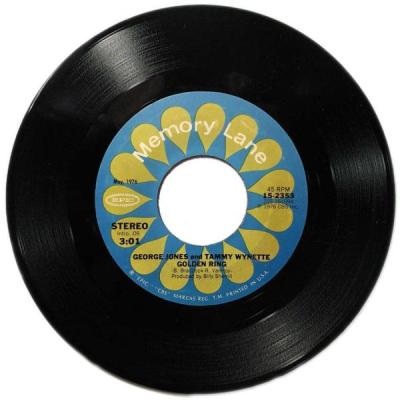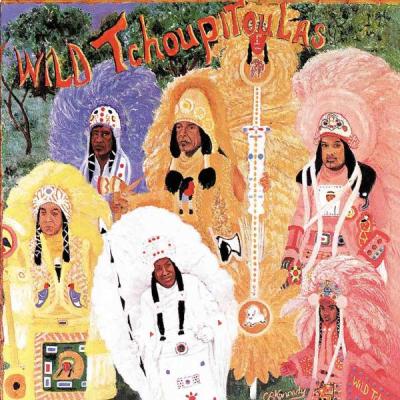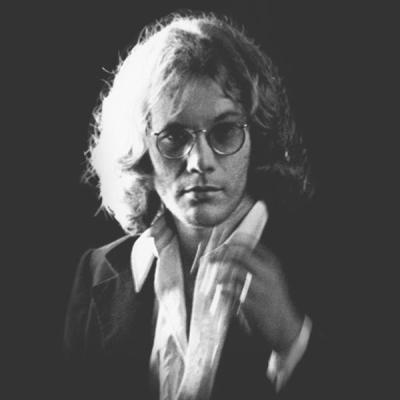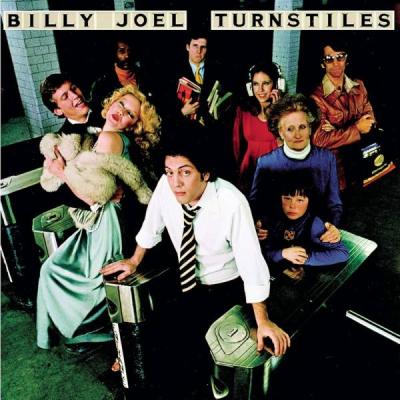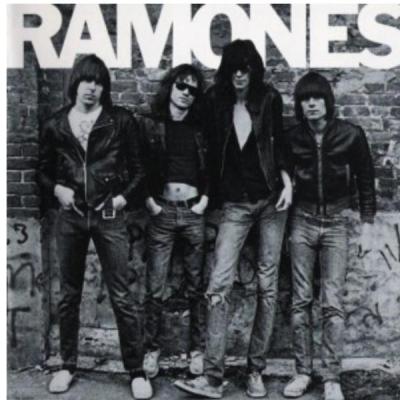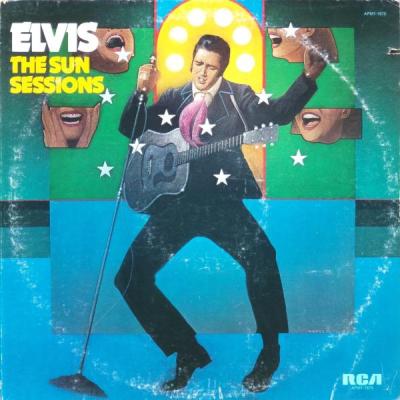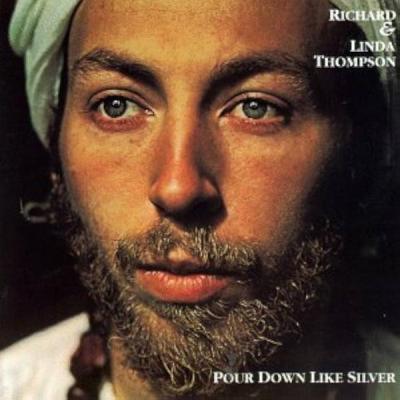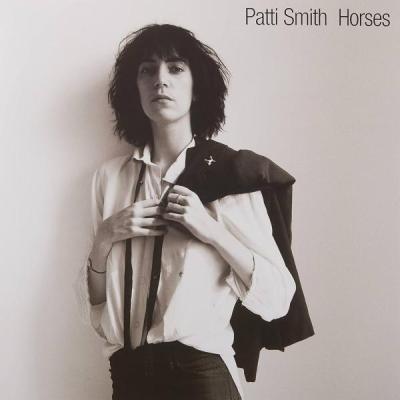

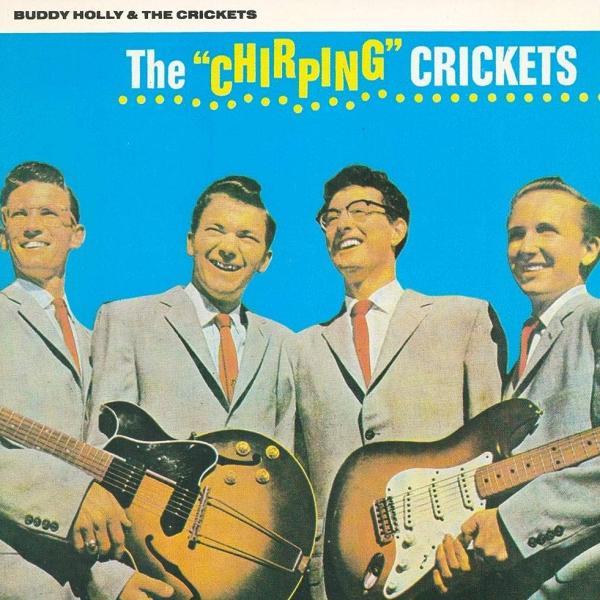
The Crickets: The "Chirping" Crickets
Album #15 - November 1957
Episode date - August 23, 2023
For somebody who had only three Top 10 hits in his lifetime, Buddy Holly has had a profound influence on popular music that by far exceeds his chart presence. He arrived on the music scene at a time when rock and roll music was beginning to sound predictable and formulaic.
"That'll Be the Day," released in the summer of 1957, was a breath of fresh air and provided enough inspiration to keep rock and roll alive and well for at least the next few decades. The solid-body Fender Telecaster guitar, which Holly played, and a new instrument, the electric bass guitar, gave the Crickets a thoroughly modern, unique look and sound that eventually were used by virtually every rock-and-roll band that followed, but it almost didn’t happen.
Holly performed as an opening act for Elvis Presley and Bill Haley, which got him noticed by Decca Records. They offered Holly a contract, but they teamed him with Owen Bradley, a Nashville kingpin who despised rock and roll and demanded full control of the recording sessions. Holly did as he was told, changing his playing and singing style, but to no avail. The resultant single bombed, and Decca subsequently refused to release anything else.
Holly knew he could do better if left to his own devices, so he decided to recut "That'll Be the Day," one of the songs that Decca originally waylaid. He completed his band by adding bass and rhythm guitar, then drove to Norman Petty's recording studio in Clovis, New Mexico. The atmosphere Petty provided was light-years away from the manipulations Holly had suffered at the hands of Decca. Petty allowed the group to record at a leisurely pace, taking as payment a share of the resultant publishing royalties. Although Petty probably had some creative input, this arrangement is most likely the reason so many Buddy Holly songs have writing credits attributed to him.
Because Decca had the original "That'll Be the Day," and Holly remained under contract to them with terms that prevented him from re-recording his own material, it was determined to be unwise to use Holly's name in the credits, so they hastily labeled themselves The Crickets. The demo tape fell into the hands of Bob Thiele at Coral Records, who loved the song, but the label heads at Coral had no interest in rock and roll. Thiele then arranged for Coral's sister label, Brunswick, to release "That'll Be the Day." By sheer coincidence, both Coral and Brunswick were subsidiaries of Decca, so when the song became a huge hit and Decca learned the identity of the Crickets’ vocalist, a lawsuit would have been ludicrous, since they would essentially be suing themselves. "That'll Be the Day" eventually reached #1 on the pop charts, the only #1 hit of Buddy Holly's abruptly truncated career.
“The “Chirping” Crickets” compiled all three of Holly’s Brunswick singles and their B-sides, then adding another six songs from the New Mexico sessions. In its time it was a modest release but now, it almost sounds like a greatest hits collection. His version of Chuck Willis’ “It’s Too Late” breathed new life into the song and when paired with his cover of Little Richard’s “Send Me Some Lovin”, it balanced Holly on the knife edge between country music and R&B. Along with Chuck Berry, he represented the new future of rock and roll - a performer with production skills who could write his own material.
Tracks Include:
Oh, Boy!
Not Fade Away
You've Got Love
Maybe Baby
It's Too Late
Tell Me How
That'll Be the Day (May 27, 1957 Brunswick version)
I'm Looking for Someone to Love
An Empty Cup (And a Broken Date)
Send Me Some Lovin
Last Night
Rock Me My Baby
November 1957 – Billboard Did Not Chart
Related Shows
- 1 of 20
- ››


